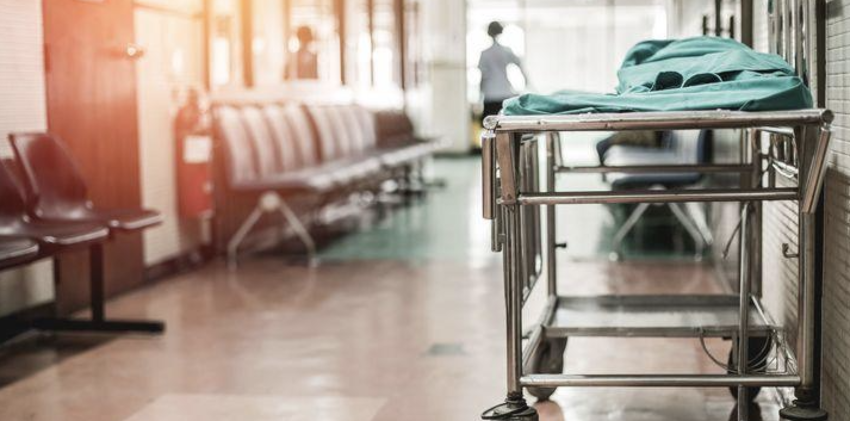Why are Pasifika dying from Covid more than everyone else?

by Mariner Fagaiava-Muller
Pasifika account for nearly half (43.4%) of Covid deaths per 100,000 people since the Omicron outbreak began, TheCoconet can reveal.
87 Pacific peoples with Covid-19 have died since 19 January, according to Ministry of Health data obtained by TheCoconet.
No other ethnic group in New Zealand is dying relative to their overall population more than Pasifika. The entire Pacific population is shortly above 350,000.
Māori stand at 23% of deaths per 100,000 people. The rate for Asians is 6.8%, while European and other ethnicities account for 26.7%.
Elderly Pacific peoples are at much higher risk of death. 73 people aged over 60 have died since the beginning of Omicron, compared to 14 aged 0 to 59.
University of Auckland associate professor of public health, Dr Collin Tukuitonga, says the deaths were expected and preventable - given socioeconomic factors were well looked after.
“Clearly in terms of poor access to health services, poor quality housing, difficult access to healthcare - there is a responsibility on the health system and people within it to have done better,” he says.
“I suppose the government, ultimately in terms of improving things, is responsible.”

Hospital waits and delays existing before Covid have exacerbated people’s access to care, he added. South Auckland’s Middlemore Hospital operates the busiest emergency department in the Southern Hemisphere.
“There are many in the health sector who will say that the system is stretched,” Dr Tukuitonga says.
“One unfortunate thing is that because the government has lifted restrictions, not mandated masks in schools, taken away vaccine passes - people think ‘oh we’re okay now’.”
“But the perception because the way the government has communicated this, is that Covid isn’t an issue. Covid hasn’t gone away, and being complacent will put you and your whānau at risk.”

Dr Tukuitonga warns that amidst New Zealand’s border reopening, high risk of flu and measles is also imminent. So too, winter is on its way.
“One could say that the attention provided to pre-existing conditions among Māori and Pasifika is inadequate, a substandard quality of care.”
“If you are Samoan or Niuean or whatever, if you have diabetes, chances are that the quality of care you get from our so-called world class health system will not be what has been recommended.”

Auckland councilor Josephine Bartley worries about the amount of Covid-related deaths amongst Pasifika.
“We already knew that we were at high risk for Covid and to see these statistics coming through, proves why we need to remain a priority for government and health providers,” she says.
“We’ve been really strong as communities so far up until now about wearing masks, getting vaccinated and boosted.”
“It is kind of confusing about red and orange light, can we have big gatherings again because we seem to be going to that with our funerals and weddings.”
It’s understandable how people in their yearning for normality are getting exposed to the virus when out and about, she says.
Bartley has been a staunch advocate throughout the vaccination rollout, attending many outside of her Maungakiekie-Tāmaki constituency to encourage Pacific in getting their shots. She received around-the-clock security detail, after a group of men harassed and threatened her.
She concedes vaccination can’t be the only layer of protection against Covid because of preexisting health ailments. Her advice, “be extra careful and continue being careful.”

Chillion Sanerivi is Youth Innovation Lead at social change agency The Cause Collective, which launched the ‘Prepare Pacific’ online information portal.
People are over it, Sanerivi says. “People really do want to get to the normality of life, without the realisation that we never will get back to how things were.”
“There’s this inertia of people not wanting to accept the new reality of which we are in.”
Sanerivi oversees Pasefika Youth United, a group of rangatahi who’ve organised four vaccination drives over the last six months.
“It’s almost like trying to make Covid sexy, to a degree,” he says about the initiative which has seen medals being awarded to vaccinated children and a brief visit by the prime minister.
“It’s not a topic that not all young people want to talk about. But the common thread was looking after their own.”

The "and and and" of underlying health issues unique to Pacific will continue to take lives with or without Covid, Sanerivi says.
“There is still is a big gap in my case, of young people designing some sort of prevention system to uplift and protect our communities.”
“A lot of decisions have just been made. It doesn’t allow our communities to digest and to even socialise the change.”
–
Public Interest Journalism funded by NZ On Air
